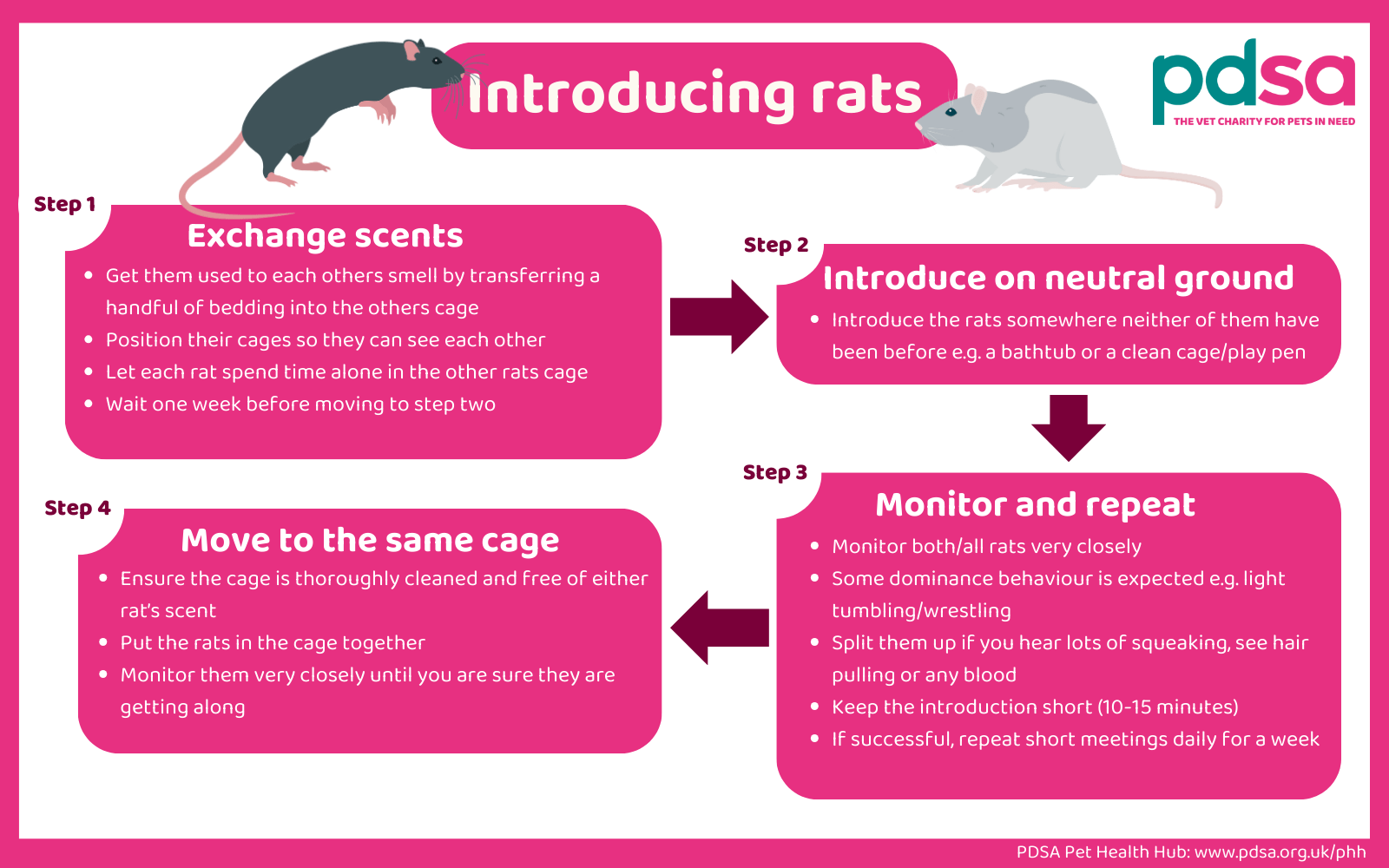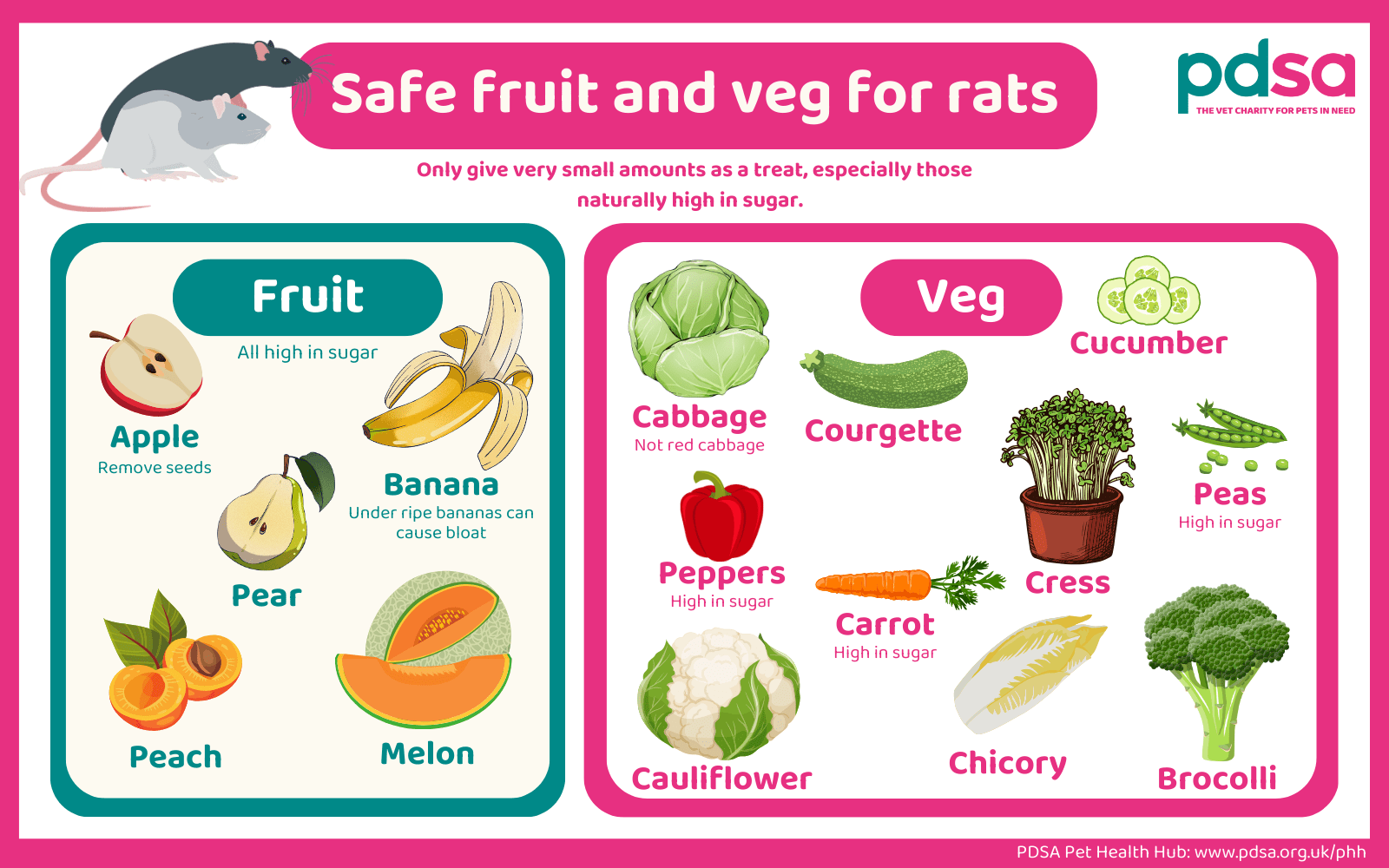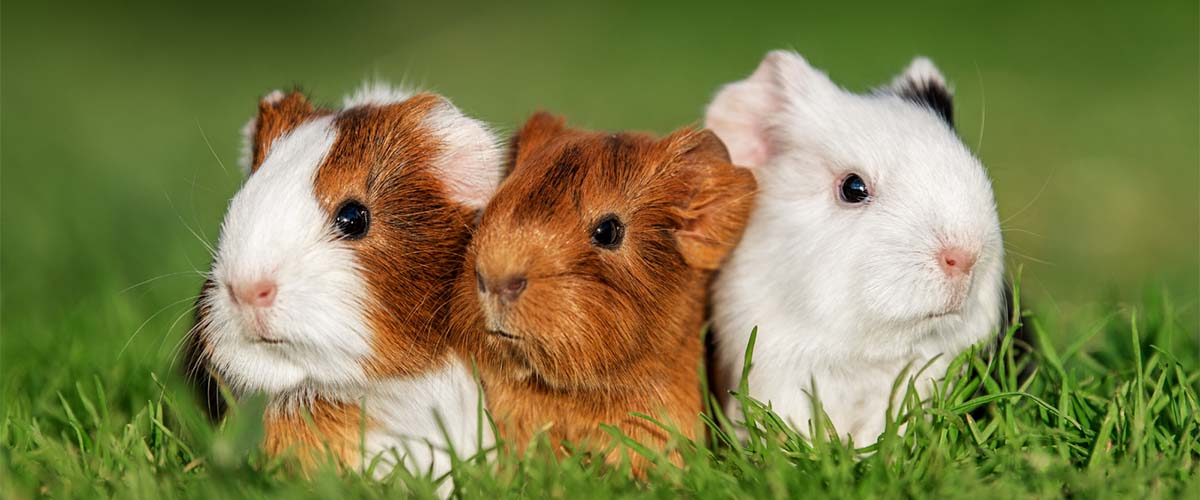Rats as pets

Rats are intelligent, friendly, and inquisitive creatures that can make wonderful companions for the right owner. They very rarely bite, and are easy to handle if they’re socialised from a young age. Their intelligence and curious nature makes them a lot of fun. Here are some key things to consider before getting a rat:
- Time commitment: Rats need lots of attention and playtime, and can become depressed without it. If you don't have much time to spare, it may be best to consider a different species that is happy with less human interaction.
- Noise: Rats are crepuscular and nocturnal, so they can be quite noisy during the evenings and at night. With this in mind you’ll need to choose a suitable location for their cage.
If you're willing to invest the necessary time and energy, rats can be incredibly rewarding companions.
Can rats live alone?
No, rats can’t live alone. Although they enjoy human company, they also need a rat companion (or two) to stay happy and healthy. A pair or small group is the best option and groups should be same sex (unless neutered) to prevent unwanted pregnancies. It’s best to keep rats from the same litter together as this lowers the chance of aggression. However, if this isn’t possible, gentle introductions can be made successfully (see infographic below).

What to feed your rats
Rats are omnivores - which means they eat a mix of plants and meat. The best diet for your rat will be one that’s as close to a natural diet as possible.
The ideal diet will include:
- Commercial rat nuggets. These contain the right balance of nutrients for your rat. Rats gain weight easily so follow the feeding guidelines on the packet and weigh their food out each day to make sure you aren’t giving them too much. You can buy rat nuggets in pet shops.
- Small amounts of fresh fruit and vegetables daily. Check out our list of rat-friendly fruit and veg below.
- Occasional treats. Such as small pieces of lean meat, a mealworm, egg, lentils, beans, peas and chickpeas.

The ideal home for your rats
Rats need as much living space as you can give them, and additional space for exercise. Large cages suitable for ferrets and chinchillas are usually a good size - just make sure they can’t squeeze between the bars. The more rats you have, the larger their cage will need to be. They must be kept indoors, out of draughts and direct sunlight. Their ideal temperature is 20°C. Avoid placing the cage near TVs or music systems as the vibrations from these can make them very stressed.
Rats can become very unhappy and unwell if they don’t have enough space, so it’s important to make sure their cage is big enough.
Ideal cage checklist:
- Different levels: this allows your rats to climb and exercise.
- Nesting areas: warm nest boxes to sleep in, this could be hammocks, beds, or cardboard boxes with rat-safe bedding (tissue/blankets).
- Good ventilation: a cage with poor air flow can lead to severe lung problems.
- Toys: try and create an adventure playground! Ropes, ladders, branches, shelves all allow your rat to stay occupied and engaged.
- Bedding/flooring: flooring should be solid and not wire or bars. Line the flooring with a paper-based rat bedding or fleece cage liner which can be washed regularly. Never use a dusty bedding such as wood chippings or sawdust as these can cause breathing problems.
Beware: never use cedar/pine woodchips or newspaper in your rat’s cage as they can be toxic! Never use cotton wool as it can cause injuries if it gets wrapped around tiny toes, and gut blockages if eaten.
Keeping your rats clean
Rats can be smelly. Their wee naturally contains a large amount of ammonia so their cage needs to be cleaned regularly to avoid smells. Additionally, exposure to ammonia can cause respiratory illness in rats, which is why it’s so important to stay on top of their mess.
- Check their cage every day and clear out any dirty bedding
- Deep clean their cage once a week, giving it a good scrub with a pet safe cleaner
- Keep back a small amount of used but clean bedding to put back in afterwards so their cage still smells like home
- Try to litter train your rats - this will keep mess to a minimum and makes daily cleaning quick and easy (read more about litter training below)
Rat enrichment
Rats are very curious creatures and need lots of toys and activities to keep them occupied. Ladders, tunnels, hiding places, ropes and hammocks are all great fun.
In the wild rats would spend a lot of time searching out food. You can recreate this natural behaviour by scattering their rat nuggets around the cage instead of feeding from a bowl. Hiding treats or fresh fruit and veg in paper bags or cardboard tubes and boxes is another great option as your rats will love working out how to get to their food!
As well as a large cage, it’s important to allow your rats to exercise and play freely in a separate secure room or exercise pen! Adding some toys they don’t usually have in their cage can also help keep their brains active – just ensure they are supervised at all times and don’t have access to wires.
Rat health
It’s important to monitor your rats closely for signs of illness. If you notice any changes in behaviour or appearance, consult your vet promptly. Common health problems in rats include:
- Respiratory disease: Rats are very prone to respiratory disease. Viruses, bacteria, inappropriate diet, and inappropriate housing can all contribute to its development. Symptoms of respiratory disease in rats include runny eyes, a runny nose, a head tilt, difficulty breathing, snuffling, wheezing and losing weight. If you notice your rat has any of these symptoms, take them to a vet ASAP as infections can get worse very quickly. Not all respiratory disease can be avoided but there are plenty of things you can do to reduce the chance of a problem:
- Feed your rats a balanced healthy diet to boost their immunity and give them the best chance of fighting off any nasty bugs
- Clean their cage regularly to prevent ammonia (found in wee) build up
- Make sure their cage has excellent ventilation
- Never use dusty bedding
- Tumours: these are unfortunately very common in rats, especially mammary (breast tissue) tumours. They can grow quickly and need removal. Rats are also prone to a tumour near the ear called a ‘zymbals gland tumour’, these can be very serious and painful so you should speak to your vet.
- Skin problems: These are usually caused by bacterial infections, parasites, or barbering. Symptoms often include hair loss, itching and red skin. Barbering is when one rat chewing the fur of another rat, resulting in patchy/bald fur that can become sore. Barbering is often a behavioural issue seen in bored or very dominant rats.
- Tooth problems: These can occur in rats because they have continuously growing incisors (front teeth) that must be worn down by gnawing. If these teeth become overgrown they can cause difficulty eating, pain, weight loss and drooling.

As with any pet, it’s important to learn how to pick up your rat safely. Follow the steps below to keep your rats safe and happy:
- Place one hand under or around their chest area.
- Lift and support their hind legs with the other hand.
- Hold them close to your body for security.
- Rats can also be picked up by placing your hand on either side of them and scooping them up into your palm.
- Rats often love sitting on people’s shoulders.
- Young children should always be supervised around rats – it’s usually best for them to stroke and handle them at ground level.
- Why is my rat crying red tears?
- How can I stop my rat pooing and weeing everywhere?
- How do I litter train my rats?
- My rats keep fighting, should I split them up?
Why is my rat crying red tears?
Rats have glands in their eyes which produce a reddish brown liquid. It can make them look like they have red tears or a nose bleed.
Rats produce more of this red liquid if they’re stressed. Rats can suffer from stress due to:
- Pain
- Not enough space in their cage
- Draughty or noisy living environment
- Poor nutrition
- Not being picked up carefully and correctly
- Illness
- Prowling predators, such as the family cat or dog
How can I stop my rat pooing and weeing everywhere?
You can’t! Rats naturally poo and wee a lot and this can make them smelly if you don’t keep on top of cleaning them out. Litter training can be a great option to help you manage mess in-between deep cage cleans.
How do I litter train my rats?
It’s surprisingly easy to litter train rats, follow the steps below for the best chance of success:
- Check if there is a spot your rat usually goes to the toilet and put a litter box there.
- If your rats tend to go all over the place, start by putting litter trays in all corners of the cage.
- Collect any poos and place into the litter box. Do this so that your rats can see - they are smart and will soon pick up on the behaviour.
- Offer treats if you see them using a litter box.
- Keep at it - it might take a while for your rats to get used to the new routine but be patient and they will soon pick it up.
My rats keep fighting, should I split them up?
Rats are really playful and often play fight with each other. Play fighting is nothing to worry about, but it’s important to know the difference between play fighting and aggressive fighting.
If they’re playing, your rats will take turns at chasing and pinning each other down and their ‘bites’ won’t do any harm and will be aimed at the back of their opponent’s neck.
If they’re fighting you’ll notice:
- Their fur standing on end during the fight
- Injuries to one or both rats
- Bites on their bottom or sides
- The weaker of the two rats will try to hide from the other and might act nervously
If you’re rats are fighting often, and not just playing, you’ll need to separate them to stop them getting injured and stressed.
Hamsters as pets
Thinking of adopting hamsters as pets? Our in-depth guide will answer all your questions.

